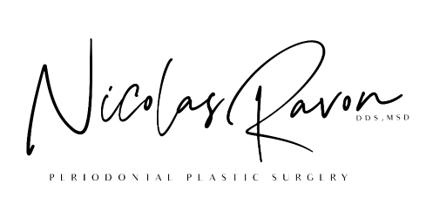When we think about our health, often our minds jump to our heart, our diet, our exercise routines, and perhaps even our mental well-being. However, one crucial aspect often overlooked is our oral health, specifically the health of our gums. Emerging research has illuminated the profound connection between gum health and overall wellness, underscoring the importance of maintaining a robust oral hygiene routine.
Gum Disease
Gum disease, or periodontal disease, is an infection of the tissues that hold your teeth in place. It’s typically caused by poor brushing and flossing habits that allow plaque—a sticky film of bacteria—to build up on the teeth and harden. In its early stage, called gingivitis, gums can become swollen and bleed easily. In its more severe form, called periodontitis, the gums can pull away from the tooth, bone can be lost, and the teeth may loosen or fall out.
The Mouth-Body Connection
Recent studies have shown that gum health is not just about maintaining a beautiful smile—it’s integral to our overall health. Here’s how:
- Heart Health: There is a significant correlation between gum disease and heart disease. Inflammation caused by periodontal disease can lead to hardened arteries, a condition known as atherosclerosis. This can increase the risk of heart attacks, strokes, and other cardiovascular issues. Bacteria from the mouth can enter the bloodstream, leading to inflammation and arterial plaque buildup.
- Diabetes: Diabetes and gum disease share a bidirectional relationship. High blood sugar can lead to gum infections, and severe gum disease can make it more difficult to control blood sugar, creating a vicious cycle. Managing gum health is crucial for diabetics to maintain their overall health.
- Respiratory Health: Bacteria from periodontal disease can travel to the lungs, causing respiratory infections or worsening existing lung conditions such as pneumonia and chronic obstructive pulmonary disease (COPD). This is particularly concerning for the elderly and those with compromised immune systems.
- Pregnancy: Pregnant women with gum disease are more likely to experience complications such as preeclampsia, premature birth, and low birth weight. The inflammation and bacteria from gum infections can affect the placenta and the baby, highlighting the importance of dental care during pregnancy.
- Cognitive Health: Emerging research suggests a link between periodontal disease and cognitive issues such as Alzheimer’s disease. Chronic inflammation and bacteria may influence brain health, emphasizing the importance of a healthy mouth for a healthy mind.
Preventing Gum Disease
Maintaining gum health is straightforward but requires consistency:
- Brush Twice Daily: Use fluoride toothpaste and a soft-bristle toothbrush to clean your teeth and gums effectively.
- Floss Daily: Flossing removes plaque and food particles from between the teeth and under the gumline which a toothbrush can’t reach.
- Regular Dental Checkups: Professional cleanings and checkups can prevent and detect early signs of gum disease.
- Healthy Diet: A diet rich in vitamins and minerals supports oral health. Limit sugary snacks and drinks which can contribute to plaque buildup.
- Quit Smoking: Smoking weakens the immune system, making it harder to fight off a gum infection and more difficult for gums to heal once they’ve been damaged.
Conclusion
The link between gum health and overall wellness is undeniable. As we strive for holistic health, it’s crucial to remember that our mouths are not separate from the rest of our bodies. By taking care of our gums, we can reduce the risk of severe health conditions and enhance our overall well-being. So, next time you brush and floss, remember—you’re not just protecting your smile, but also nurturing your entire body.


